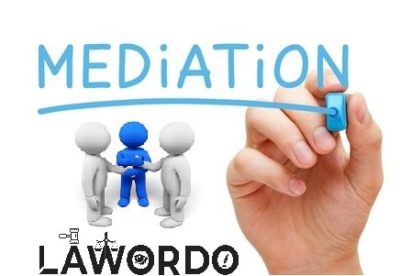8 Things to make Mediation Effective
The Indian legal system is one of the most complex in the world. People, in general, believe that institutionalized procedures, particularly those developed in the public realm for dispute resolution, are trustworthy. There is a common belief that the court system is on the verge of collapsing due to severe resource constraints. The current judicial crisis necessitates a greater adoption of alternative dispute resolution methods such as mediation and arbitration, which should be overseen by ex-judges, experienced lawyers, and government officials with special domain knowledge to cover a wide range of industries and types of disputes.
Because issues and disputes are so diverse, several approaches for resolving them have emerged. Rights-based, power-based, interest-based, and legislative models are the four primary types of models. The models guarantee either a win-lose or a win-win outcome.
What Exactly Mediation is ?
Mediation is a technique in which a neutral third party, a Mediator, assists disputing parties in resolving their disagreements in a peaceful and creative manner. A skilled Mediator is supposed to utilise specific communication skills and negotiation strategies to help disputing parties overcome their differences and reach an agreement that is acceptable to both parties. Mediation can be started at any stage of a dispute, including before litigation, when disagreements occur, and even during the trial.
8 Things to make Mediation Effective
Confusion Caused by Multiple Terms
There are no specific legal rules relating to mediation and settlement as there are for arbitration and conciliation, practitioners who planned to use one technique but inadvertently used the other way of ADR are confused. As a result, care must be taken to ensure that persons working in the ADR ecosystem are aware of the various sorts of ADR procedures and the mechanisms involved in each variant
Laws pertaining to arbitration, mediation, and conciliation lack a clear distinction.
A brief examination of these rules, as well as other ADR regulations, reveals that the Mediation and Conciliation Rules, 2005 are insufficiently framed and do not cover the full scope of the mediation process. The Mediation and Conciliation Rules, 2004 cover essentially the same provisions as the Arbitration and Conciliation Act, 1996, according to practitioners of ADR procedures. As a result, the lack of a clear demarcation and the absence of explicit statutes causes a lack of trust and a sense of ambiguity in the mediation process.
Absence of Mediation Culture
The lack of a peaceful settlement mentality is a major impediment to the successful adoption of the median. The preference for a simple binary result rather than a nuanced, complicated approach that requires equal parts communication, sensitivity, and imagination also limits the use of mediation and other ADR instruments.
Low Success Rate of Mediation Mandated by the Courts
It has been noticed that the parties involved in court-ordered mediation have doubts about the mediator’s impartiality. Even if the mediator’s mandate could be restricted by a statute, the parties concerned are concerned that the statute would inherently limit the mediator’s ability to work impartially.
Lack of Public Awareness
Because there is a scarcity of publicly available information on ADR methods and their benefits, they avoid possibly settling disputes through mediation and instead choose litigation. This immediately puts the parties in conflict in adversarial positions, making it impossible for them to back down from their positions unless they reach a judicial or other type of settlement.
Arbitration, Mediation, and Conciliation Laws Have Their Own Legal Framework
The government must create clear, distinct statutes that will serve as a basis for identifying the various ADR proceedings. This would considerably assist practitioners in establishing a more solid foundation for the mediation process and a strong underlying legal concept.
Promote a Mediation Culture
The government should foster a culture of resolving disagreements amicably rather than relying on traditional litigation to resolve conflicts. Even in a court-mandated ADR process, the combative approach taken by the parties to a dispute is counterproductive.
Bar Associations should have ADR goals.
Each financial year, the government must set a minimum percentage of new cases that must be resolved using one of the ADR methods. This would drive them to begin training and upskilling member advocates in the field of ADR, as well as building a profitable ADR practise.



